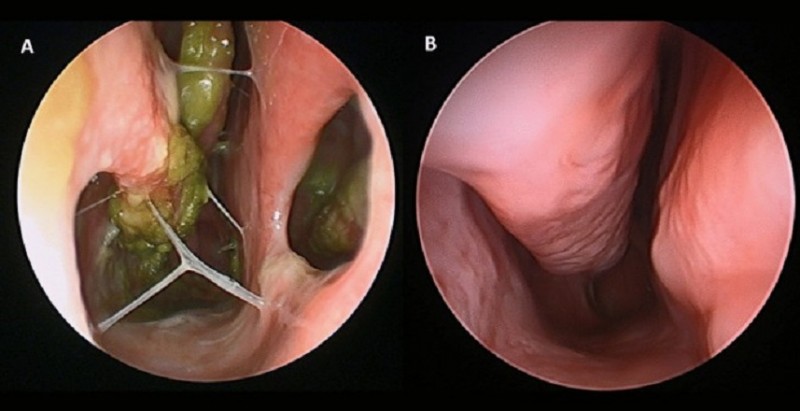
Empty Nose Syndrome (ENS) is a condition that can significantly impact your quality of life. If you've undergone nasal surgery and are experiencing unusual symptoms, you might be dealing with ENS. Understanding the symptoms is crucial for seeking the right treatment and improving your well-being.
Understanding Empty Nose Syndrome
What is ENS?
Empty Nose Syndrome typically occurs after nasal surgery, such as turbinate resection, where parts of the nasal turbinates are removed. The condition is characterized by a paradoxical sensation of nasal obstruction despite having a seemingly wide-open nasal passage.
Symptoms of ENS
Persistent Dryness and Emptiness
The most common type of ENS is ENS-IT. According to Dr. Mahajan, patients with this type feel a constant sense of emptiness and dryness in their noses. This persistent discomfort can lead to depression in many cases.
Painful Breathing
Another subtype is ENS-MT, where the middle turbinate is involved. Patients with ENS-MT experience pain while breathing, which can be particularly distressing and interfere with daily activities.
Combination of Symptoms
The third type involves both turbinates, resulting in a combination of symptoms from ENS-IT and ENS-MT. This means patients may feel both dryness and pain, making the condition even more challenging to manage.
Common Signs to Watch For
Nasal Obstruction: Despite having a large nasal cavity post-surgery, patients often feel as if their nose is blocked.
Crusting: The formation of crusts inside the nasal passage is a frequent complaint among ENS patients.
Persistent Dryness: The nose feels unusually dry, which can be irritating and uncomfortable.
The Impact of ENS on Mental Health
The chronic discomfort and breathing difficulties associated with ENS can lead to emotional distress. Many patients report feeling depressed due to the constant sensation of nasal dryness and obstruction. This highlights the importance of recognizing ENS symptoms early and seeking appropriate medical help.
What to Do If You Suspect ENS
If you recognize these symptoms and suspect you might have ENS, it's essential to consult an ENT specialist. They can provide a proper diagnosis and discuss potential treatment options to help alleviate your symptoms.
Empty Nose Syndrome can be a debilitating condition, but understanding its symptoms is the first step toward managing it. By staying informed and seeking professional advice, you can take control of your health and improve your quality of life.
Read More:
Why These Health Conditions Affect Women More Severely Than Men?
Don’t Let Diabetes Dampen Your Health: Nutrient-Rich Treats This Summer
Feeling Dizzy All the Time? Here are 5 Ways to Get Rid of Lightheadedness